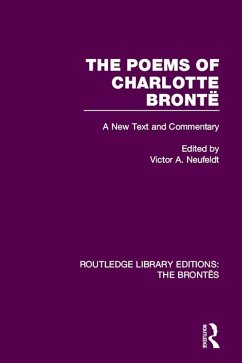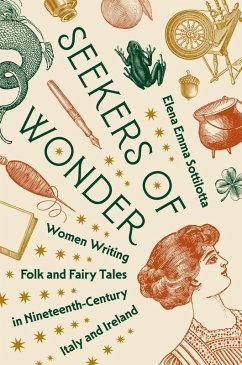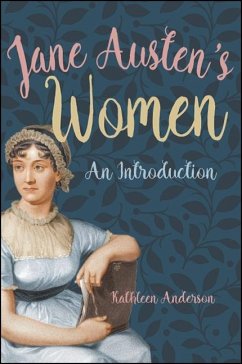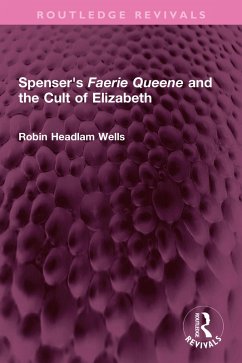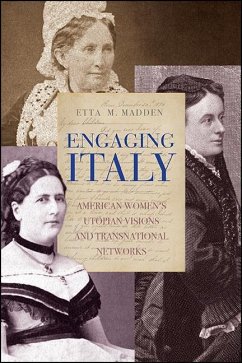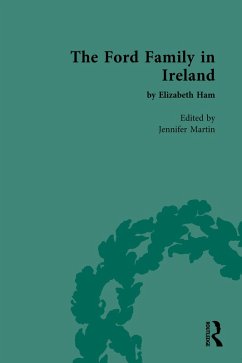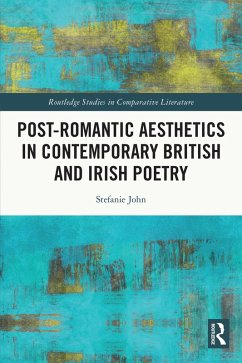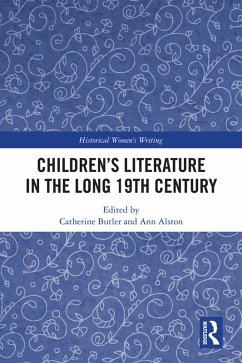
Charlotte Brontë at the Anthropocene (eBook, ePUB)

PAYBACK Punkte
14 °P sammeln!
Forges a fresh interpretation of Charlotte Brontë's oeuvre as a response to ecological instability.Honorable Mention, 2020 Sonya Rudikoff Award presented by the Northeast Victorian Studies Association In this book, Shawna Ross argues that Charlotte Brontë was an attentive witness of the Anthropocene and created one of the first literary ecosystems animated by human-caused environmental change. Brontë combined her personal experiences, scientific knowledge, and narrative skills to document environmental change in her representations of moorlands, valleys, villages, and towns, and the process...
Forges a fresh interpretation of Charlotte Brontë's oeuvre as a response to ecological instability.
Honorable Mention, 2020 Sonya Rudikoff Award presented by the Northeast Victorian Studies Association
In this book, Shawna Ross argues that Charlotte Brontë was an attentive witness of the Anthropocene and created one of the first literary ecosystems animated by human-caused environmental change. Brontë combined her personal experiences, scientific knowledge, and narrative skills to document environmental change in her representations of moorlands, valleys, villages, and towns, and the processes that disrupted them, including extinction, deforestation, industrialization, and urbanization. Juxtaposing close readings of Brontë's fiction with Victorian and contemporary science writing, as well as with the writings of Brontë's family members, Ross reveals the importance of storytelling for understanding how human behaviors contribute to environmental instability and why we resist changing our destructive habits. Ultimately, Brontë's lifelong engagement with the nonhuman world offers five powerful strategies for coping with ecological crises: to witness destruction carefully, to write about it unflinchingly, to apply those experiences by questioning and redefining toxic definitions of the human, and to mourn the dead, all without forgetting to tend the living.
Honorable Mention, 2020 Sonya Rudikoff Award presented by the Northeast Victorian Studies Association
In this book, Shawna Ross argues that Charlotte Brontë was an attentive witness of the Anthropocene and created one of the first literary ecosystems animated by human-caused environmental change. Brontë combined her personal experiences, scientific knowledge, and narrative skills to document environmental change in her representations of moorlands, valleys, villages, and towns, and the processes that disrupted them, including extinction, deforestation, industrialization, and urbanization. Juxtaposing close readings of Brontë's fiction with Victorian and contemporary science writing, as well as with the writings of Brontë's family members, Ross reveals the importance of storytelling for understanding how human behaviors contribute to environmental instability and why we resist changing our destructive habits. Ultimately, Brontë's lifelong engagement with the nonhuman world offers five powerful strategies for coping with ecological crises: to witness destruction carefully, to write about it unflinchingly, to apply those experiences by questioning and redefining toxic definitions of the human, and to mourn the dead, all without forgetting to tend the living.
Dieser Download kann aus rechtlichen Gründen nur mit Rechnungsadresse in A, D ausgeliefert werden.




